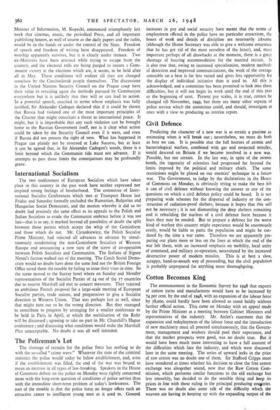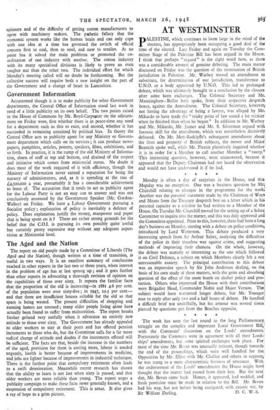Cotton Becomes King
The announcement in the Economic Survey for 1948 that exports of cotton yarns and manufactures would have to be increased by 74 per cent, by the end of 1948, with an expansion of the labour force by 58,000, could hardly have been allowed to stand baldly without further official action. This came on Monday with an appeal made by the Prime Minister at a meeting between Cabinet Ministers and representatives of the industry. Mr. Attlee's statement that the expansion and redeployment of the labour force and the introduction of new machinery must all proceed simultaneously, that the Govern- ment, management and workers should pool their experience, and that the market prospects were good, was no doubt true. But it would have been much more interesting to have a full account of the difficulties which face the industry, and which were discussed later in the same meeting. The series of upward jerks in the price of raw cotton was no doubt one of them. Sir Stafford Cripps must have wondered at times whether his decision to close the free cotton exchange was altogether sound, now that the Raw Cotton Com- mission, which performs similar functions to the old exchange but less smoothly, has decided to do the sensible thing and keep its prices in line with those ruling in the principal producing couguries. There was no doubt also some talk of the difficulty which the weavers are having in keeping up with the expanding output of the spinners and of the difficulty of getting cotton manufacturers to agree with machinery makers. The pathetic fallacy that the economic system works like the human brain and can only cope with one idea at a time has governed the switch of official concern first to coal, then to steel, and now to textiles. At no point has it solved the main problems or promoted the co- ordination of one industry with another. The cotton industry with its many specialised divisions is likely to prove an even tougher nut than the other two. The individual effort for which Monday's meeting called will no doubt be forthcoming. But the collective success will require both a new insight on the part of the Government and a change of heart in Lancashire.



































 Previous page
Previous page